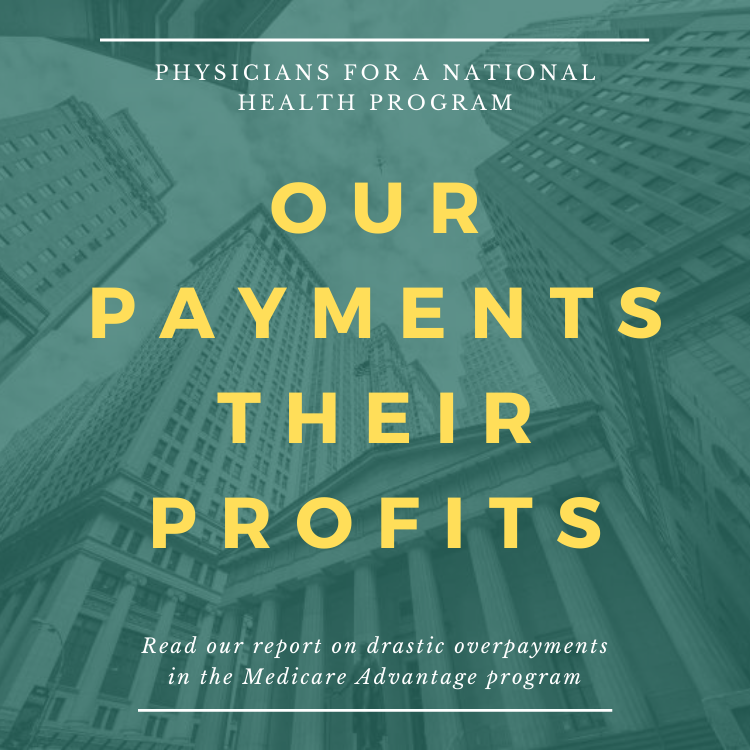By James Binder, M.D.
Charleston (W.Va.) Gazette-Mail, July 23, 2015
Medical students are taught empathic, patient-centered interviewing skills during the first two years of medical school. Patient-centered interviewing is strongly linked to better health outcomes in patients.
These interviewing skills erode as students become residents and young practitioners. Why? I believe the most important factor is an adversarial climate that is now pervasive in our health-care system, a climate created by competing private health care insurance companies.
I have noticed a harshness that was not present 30 years ago. Many professionals do provide compassionate care everyday, but the culture has changed.
I didn’t initially appreciate the importance of empathic communication. I learned through clinical experiences, including one incident that hit close to home.
An elderly woman cried as Dr. Tim Campbell made his morning rounds. The distraught woman explained that, during the previous night, she had not been allowed to visit with her gravely ill husband of 50 years (because the nurses were busy caring for him). Dr. Campbell responded with simple compassion. He hugged the woman. She calmed down, and they talked. I remember the incident because that woman was my mother.
Empathy opened the door for Dr. Campbell to be able to talk with her and make plans to transfer my dad to the ICU. The power of empathy to open up patients and collaborate with them in treatment planning is well documented in the medical literature.
Our fragmented health-care system is competitive and adversarial. This is not a surprise to anyone working in the field or to patients receiving care. What is surprising is that we continue to believe competition will improve quality and save money. It does neither.
The evidence of a hostile climate is inescapable: the new patient is asked for her insurance coverage before receiving a simple welcome; a family has to fight with a case manager to obtain needed medical coverage for their mother; a rushed doctor types into a computer and does not really listen to his patient’s concerns.
A combative approach to patient care is the direct result of believing that patients must be stopped from overutilizing the health-care system, since over utilization is considered the primary cause of our high health costs in the U.S. It is misguided.
Excessive bureaucracy is the most important factor for high costs. “A simplified, single-payer system of financing health care similar to Canada’s or the U.S. Medicare program could result in savings of approximately $375 billion annually,” says a 2014 article in BMC Health Services Research.
If we eliminated the needless bureaucracy inherent in a multi-payer system, we would realize enough savings to cover all citizens for all needed care, including mental health, dental and chronic care.
The following consequences of our current adversarial culture are powerful roadblocks to providing compassionate, patient-centered care:
1. Time spent with patients is severely limited to increase profits.
Currently about one-sixth of patient time is devoted to paperwork and red tape. Its takes time to talk, listen and partner with patients. Richard Schwartzstein reflected the thinking of many practicing physicians when he commented in the New England Journal of Medicine that, “Our system forces them (physicians) to have time-constrained interactions that challenge even the most caring doctors to apply their training.”
2. Clinicians burn out at a very high level, largely because of a loss of autonomy, working in an adversarial climate, and the massive paperwork and red tape demands that result from working in our multi-payer system.
Primary care physicians are particularly vulnerable to burnout (around 50 percent), contributing to our primary care physician shortage.
Burnout, a condition of emotional exhaustion, depersonalization, and decreased sense of accomplishment, leads to personal and family losses, with high rates of substance abuse and divorce.
Four-hundred physicians die each year from suicide, according to the American Foundation for Suicide Prevention. Studies show lower quality of care from burned out physicians. A burned out physician is unlikely to be empathic and patient-centered. Health outcomes of patients suffer.
3. Patients view the health-care system and its leaders as adversaries, not advocates.
Although most patients are satisfied with their individual clinicians, there is distrust of the system itself. This distrust does permeate into individual physician-patient relationships. Trust is fundamental to partnership and positive health outcomes. This lack of trust does not affect physicians in many other countries. The level of public trust in U.S. physicians as a group ranks near the bottom of trust levels in the 29 industrial countries recently surveyed by the International Social Survey Programme.
Insurers are well aware of the above information. Overtly, they endorse the concept of patient-centered, compassionate medical care. It is not their priority.
As Joe Biden stated, “Don’t tell me what you value. Show me your budget and I’ll tell what you value.”
We will not create a compassionate culture by legislating it or by checking a box on a computer template that we partnered with our patient. That would require a change in our attitude, our core beliefs.
One belief that would be important to adopt is: There is enough health care resources to go around and treat all patients with care, respect and competence. Imagine the improvement in health care that would result from eradicating the adversarial climate and including everyone automatically with the $375 billion saved by eliminating the excessive bureaucracy of the multi-payer system.
Dr. James Binder works at Cabin Creek Health Systems and is the author of “Pediatric Interviewing: A Practical Relationship-Based Approach and Primary Care Interviewing: Learning Through Role-Play.” He is a member of Physicians for a National Health Program.
http://www.wvgazettemail.com/article/20150723/GZ04/150729780/1455#sthash.QwloKK4F.dpuf
